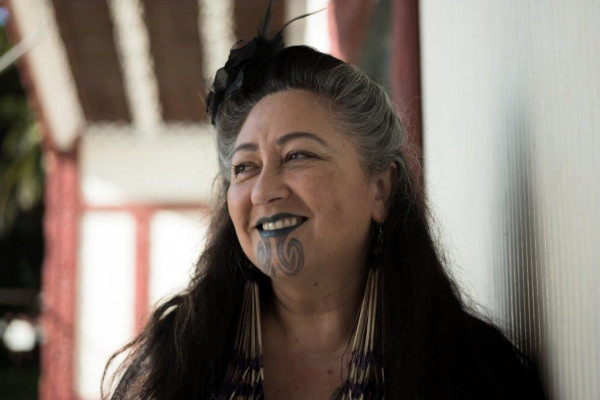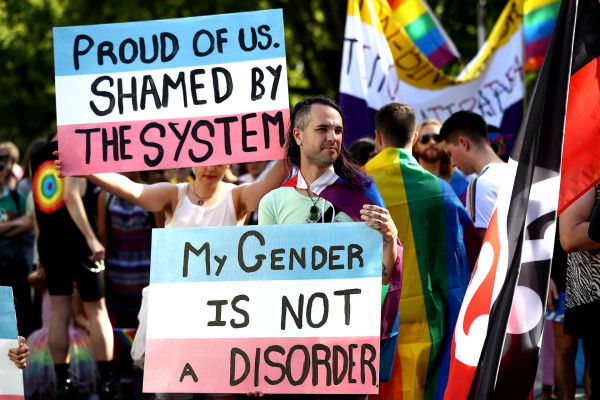In 2018, Counting Ourselves – a community-led survey for trans and non-binary people in Aotearoa – found 83 percent of participants had the incorrect gender listed on their birth certificate. Parliament is about to look at how to change this.
Changes to the Births, Deaths, Marriages, and Relationships Registration Act are currently being brought before the House. One of these changes includes making it easier for people to change the sex marker on their birth certificate.
Under the current act, the only gender marker options available are “male” and “female”. Under the proposed changes to the bill, “intersex” and “X (unspecified)” will be added – recognising non-binary sexual and gender identities.
The Bill is being spearheaded by Internal Affairs Minister Jan Tinetti.
“This Government is committed to making sure we have the best process for transgender, non-binary and intersex New Zealanders to formally acknowledge their gender” she said.
“As the Minister of Internal Affairs it upsets me to know information provided on a birth certificate can be a cause of such stress for so many people.”
Why improving the legal gender affirmation process matters
Research conducted by American journal SSM Population Health, found that legal gender affirmation was significantly associated with lower reports of depression and anxiety amongst gender diverse communities.
LGBTQIA+ activist, scholar and Green Party member Dr Elizabeth Kerekere notes that the current legislation makes it unnecessarily difficult for trans, intersex, non-binary and takatāpui people to have legal gender affirmation.
“The current process impacts on the wairua of our people, it impacts on their wellbeing and their mental health. It's just another thing where they have more hoops to jump through. They're just trying to get on with their lives in dignity” she says.
“It is quite a demeaning and unnecessary process. This new bill will affect very few people, but for a lot of those people, it will change their lives.

“It's something that cis people never have to worry about. But for trans, intersex, non-binary and takatāpui people it will mean a huge, huge amount to them.”
Under the current Act, people wanting to change the gender marker on their birth certificate must go through the Family Court and prove that they have had irreversible medical treatment to physically conform to their nominated gender. For many gender diverse people, this could mean having to undergo gender-affirming surgery.
That legal process fails to recognise that for many trans, intersex, non-binary and takatāpui people, surgery can be unwated or inappropiate.
Why it’s not fair to make irreversible medical intervention the only solution
Even for those who are wanting surgery, accessing gender-affirming healthcare is an issue in itself. According to Gender Minorities Aotearoa, the current wait time to access genital reconstruction surgery is 10 to 12 years. In 2018, that wait was 50 years.
While this can be seen as progress, the wait for what can be a life-saving surgery is still far too long. Especially considering only one surgeon in New Zealand performs these surgeries.
Technically, it is possible to change the gender marker on birth certificates without undergoing surgery.
The Community Law’s website notes that in the past, people who have not undergone surgery but have been on hormone treatment for a very long time have been successful with their application. But as the legislation currently stands, irreversible medical intervention is still an important part of the application.
What the proposed changes will do
Under the proposed changes to the Births, Deaths, Marriages, and Relationships Registration Act, the requirement for going through the Family Court and proving irreversible medical changes would be removed.
Instead, changing the sex marker on birth certificates will become more in line with the processes set in place for passports and divers’ licenses.
Currently, to change the sex marker on a passport or divers’ license, a formal legal statement (known as a “statutory declaration”) needs to be made. If the proposed bill passes, this process will be very similar for changing the sex marker on birth certificates.
Dr Elizabeth Kerekere notes the significance of the bill.
“This is a significant piece of legislation. Only a few places in the world have done this in the way that we're looking to do it.
“I will be very proud of our country when we've put it through.”

What those against the changes say
Anti-trans lobby group Speak Up for Women opposes the bill. They argue that “allowing sex self-identification on birth certificates sends a confusing signal that people can now choose their own sex”.
They acknowledge that some female-only service providers are comfortable with the inclusion of transwomen, but “others highly value their single sex status and the comfort that provides their service users”.
Bob McCoskrie, the national director of the conservative lobby group Family First NZ, also opposes the bill. He argues that the law change will deem birth certificates “meaningless” and will continue to push the “confusing ideology” of gender identity.
Rainbow rights’ issues before parliament
The bill happens to be before the House around the same time as the Conversion Practices Prohibition Legislation Bill.
“This will have a significant impact on rainbow communities because it's two major pieces of work that people have been working on for decades. Suddenly, they’re both happening at the same time” says Dr Elizabeth Kerekere.
“It's going to be a lot of effort, but when these pieces of legislation are passed, it will create a whole different foundation for rainbow people moving forward.”
You can make your views known on this bill by making a submission. You have until Tuesday 14 September to do this.